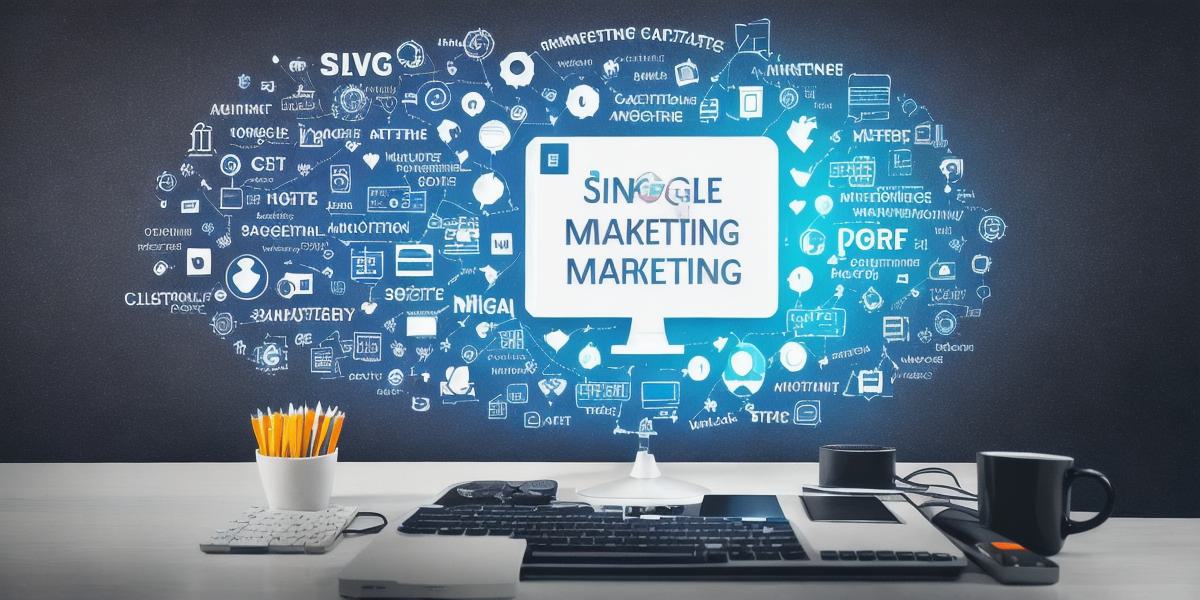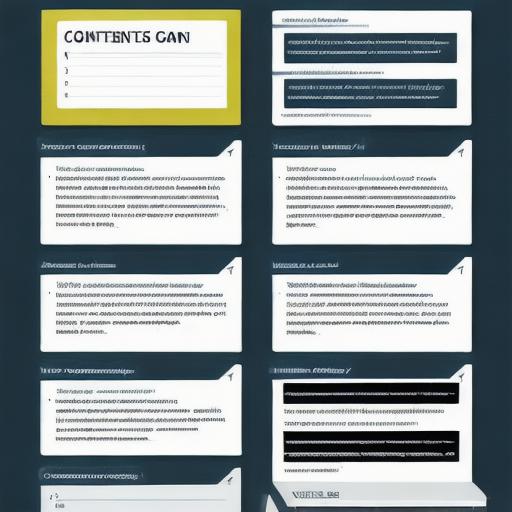What are the essential responsibilities and skills required for a marketing tools job description
As a marketing tools job description, it’s important to know what is required of you in order to excel in your role. In this article, we will explore the essential responsibilities and skills required for a marketing tools job description, including real-life examples and expert opinions. By the end of this article, you will have a clear understanding of what it takes to succeed in this field.
Essential Responsibilities of a Marketing Tools Job Description
Marketing tools professionals are responsible for managing and implementing marketing technologies, such as social media, email marketing, and analytics, to drive business growth and increase customer engagement. Here are some of the essential responsibilities of a marketing tools job description:
- Implementing and Managing Marketing Tools
Marketing tools professionals must be able to implement and manage various marketing technologies to ensure they are effective in achieving business goals. This may include setting up social media accounts, creating email campaigns, and configuring analytics tools. It’s important for marketing tools professionals to stay up-to-date with the latest trends and advancements in marketing technology to ensure their strategies remain relevant and effective.
2. Analyzing Marketing Data
Marketing tools professionals must have strong analytical skills and be able to analyze marketing data to measure the effectiveness of campaigns and make data-driven decisions. They should be able to identify trends, patterns, and insights that can help improve marketing strategies and drive business growth.
3. Collaborating with Teams
Marketing tools professionals must be able to collaborate effectively with other teams, such as sales, customer service, and product development, to ensure a cohesive approach to marketing strategy. They should be able to clearly communicate their ideas and strategies, as well as provide insights and feedback to other teams.
4. Creating Content
Marketing tools professionals must have strong writing and communication skills and be able to create engaging content for various marketing channels, such as social media, email, and blogs. They should be able to identify their target audience and tailor their content to meet their needs and interests.
5. Testing and Optimizing Campaigns
Marketing tools professionals must be able to test and optimize their campaigns to ensure they are delivering the desired results. This may include A/B testing different subject lines or ad copy, analyzing click-through rates, and adjusting campaigns based on performance data.
Essential Skills for a Marketing Tools Job Description
In addition to the essential responsibilities of a marketing tools job description, there are also several skills that are required for success in this field. Here are some of the essential skills for a marketing tools job description:
- Digital Marketing Knowledge

Marketing tools professionals must have strong knowledge of digital marketing principles and strategies, including SEO, social media marketing, email marketing, and content marketing. They should be able to apply these principles to develop effective marketing campaigns that drive business growth and increase customer engagement.
2. Analytical Skills
Marketing tools professionals must have strong analytical skills and be able to analyze data from various sources, such as Google Analytics, social media analytics, and email marketing software. They should be able to identify trends, patterns, and insights that can help improve marketing strategies and drive business growth.
3. Communication Skills
Marketing tools professionals must have strong communication skills and be able to clearly communicate their ideas and strategies to stakeholders, including senior management, team members, and customers. They should be able to present complex information in a way that is easy for others to understand.
4. Problem Solving Skills
Marketing tools professionals must have strong problem-solving skills and be able to identify and overcome challenges that arise during the implementation of marketing campaigns. They should be able to think creatively and develop innovative solutions to complex problems.
5. Adaptability and Flexibility
Marketing tools professionals must be adaptable and flexible, as marketing strategies and technologies are constantly evolving. They should be able to pivot quickly when necessary and adjust their approach based on new information and insights.
Real-Life Examples of Marketing Tools Job Descriptions
To give you a better understanding of the essential responsibilities and skills required for a marketing tools job description, here are some real-life examples of job descriptions from leading companies:
- Digital Marketing Manager at HubSpot
Responsibilities:
- Develop and execute digital marketing campaigns across various channels, including email, social media, and search engines
- Analyze campaign performance data and make data-driven decisions to optimize campaigns for better results
- Collaborate with cross-functional teams to align marketing strategies with business goals
- Create engaging content for various marketing channels, including blogs, social media, and email
- Stay up-to-date with the latest digital marketing trends and best practices
Skills:
- Strong knowledge of digital marketing principles and strategies
- Analytical skills and experience with data analysis tools, such as Google Analytics and HubSpot analytics
- Communication skills and experience presenting to stakeholders, including senior management and team members
- Problem-solving skills and the ability to think creatively
- Adaptability and flexibility in a fast-paced work environment
2. Marketing Operations Manager at LinkedIn
Responsibilities:
- Develop and implement marketing operations processes and tools to streamline marketing campaigns and improve efficiency
- Manage marketing technology stacks, including email marketing software, social media management tools, and analytics platforms
- Collaborate with cross-functional teams, including sales, product development, and customer success, to align marketing strategies with business goals
- Analyze marketing data and make data-driven decisions to optimize campaigns for better results
- Create content for various marketing channels, including blogs, social media, and email
Skills:
- Strong knowledge of marketing operations principles and practices
- Experience managing marketing technology stacks and tools

- Analytical skills and experience with data analysis tools, such as Google Analytics and LinkedIn analytics
- Communication skills and experience presenting to stakeholders, including senior management and team members
- Problem-solving skills and the ability to think creatively
- Adaptability and flexibility in a fast-paced work environment
3. Social Media Marketing Manager at Hootsuite
Responsibilities:
- Develop and execute social media marketing campaigns across various platforms, including Facebook, Twitter, Instagram, and LinkedIn
- Analyze social media performance data and make data-driven decisions to optimize campaigns for better results
- Collaborate with cross-functional teams, including content creation, customer service, and product development, to align social media strategies with business goals
- Create engaging content for various social media channels, including blogs, images, and videos
- Stay up-to-date with the latest social media trends and best practices
Skills:
- Strong knowledge of social media marketing principles and strategies
- Analytical skills and experience with data analysis tools, such as Hootsuite Insights and Google Analytics
- Communication skills and experience presenting to stakeholders, including senior management and team members
- Problem-solving skills and the ability to think creatively
- Adaptability and flexibility in a fast-paced work environment
Expert Opinions on Marketing Tools Job Descriptions
To gain further insights into the essential responsibilities and skills required for a marketing tools job description, we spoke with industry experts and thought leaders:
- Neil Patel, Digital Marketing Expert and Founder of Neil Patel Digital
"Marketing tools job descriptions require a combination of technical skills, analytical abilities, and creative thinking. To be successful in this role, you must have a deep understanding of digital marketing principles and strategies, as well as the ability to analyze data and make data-driven decisions. You should also be able to think creatively and develop innovative solutions to complex problems."
2. Amy Porterfield, Online Marketing Strategist and Host of the Online Marketing Made Easy Podcast
"Marketing tools job descriptions require strong communication skills, as you will be working closely with stakeholders across the organization. You must be able to present complex information in a way that is easy for others to understand, and you should be comfortable collaborating with cross-functional teams to align marketing strategies with business goals."
3. Mari Smith, Facebook Marketing Expert and Author of The New Relationship Marketing
"Social media marketing job descriptions require a deep understanding of social media platforms and trends, as well as the ability to create engaging content that resonates with your target audience. To be successful in this role, you must stay up-to-date with the latest social media best practices and be willing to experiment with new approaches."
Conclusion
Marketing tools job descriptions require a combination of technical skills, analytical abilities, and creative thinking. To be successful in this role, you must have a deep understanding of digital marketing principles and strategies, as well as the ability to analyze data and make data-driven decisions. You should also be able to think creatively and develop innovative solutions to complex problems, while staying up-to-date with the latest trends and best practices in your field.




